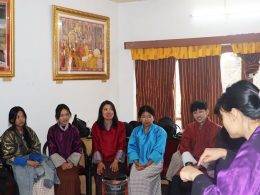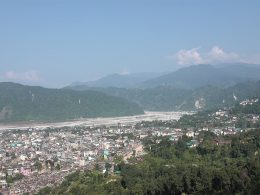As the world prepares for the 30th United Nations Climate Change Conference (COP30), Bhutan is stepping onto the global stage with a sharpened climate agenda aimed at securing greater international support and ensuring mountain ecosystems receive the attention they urgently need.
At the heart of Bhutan’s strategy is a call for enhanced climate finance and a more equitable global climate framework. Phuntsho Namgyal, Director of the Department of Geology and Mines, underscored the need for clearer definitions and accountability around climate finance, urging wealthier nations to step up support for developing countries grappling with climate impacts.
“Climate finance remains a vague promise without precise meaning,” Namgyal said. “We need greater transparency and commitment to ensure that support reaches the most vulnerable.”
A key priority for Bhutan at COP30 will be the protection of fragile mountain ecosystems, which face accelerated threats due to rising temperatures and glacial retreat. Bhutan aims to ensure that these vulnerabilities are recognized in the upcoming Global Stocktake (GST), the mechanism designed to assess collective progress toward the goals of the Paris Agreement.
The Himalayan kingdom is also preparing to submit its Third Nationally Determined Contribution (NDC 3.0), signaling a renewed commitment to climate ambition. The updated plan will align with Bhutan’s 21st Century Economic Roadmap and its obligations under the Paris Agreement, reinforcing its reputation as a global climate leader.
Central to Bhutan’s vision is the principle of a just transition — a fair and inclusive shift toward a net-zero world that safeguards both people and planet. The country is championing global efforts to ensure that the burdens and benefits of climate action are shared equitably.
Bhutan’s National Adaptation Plan (NAP) continues to prioritize resilience-building in key sectors such as water, agriculture, and public health — areas most at risk from the impacts of climate change. These efforts are part of a broader strategy to protect livelihoods and bolster national preparedness for climate-related disruptions.
As one of the few carbon-negative countries in the world, Bhutan remains committed to maintaining its unique status. Through sustainable development and conservation-driven policies, the country continues to offer a powerful example of how environmental stewardship and economic planning can go hand in hand.
With its sights set on COP30, Bhutan is poised to not only amplify the voice of mountain nations but also push for more ambitious, inclusive, and accountable global climate action.








